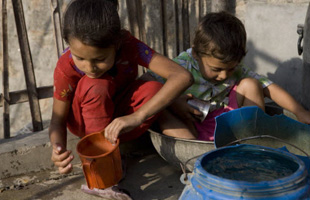
On World Hepatitis Day, 28 July, WHO is advocating action against the five hepatitis viruses that can cause severe liver infections and lead to 1.4 million deaths every year. Some of these hepatitis viruses can also lead to chronic and debilitating illnesses such as liver cancer and cirrhosis, in addition to loss of income and high medical expenses for hundreds of millions of people worldwide.
On World Hepatitis Day (28 July), WHO is urging governments to act against the five hepatitis viruses that can cause severe liver infections and lead to 1.4 million deaths every year. Some of these hepatitis viruses, most notably types B and C, can also lead to chronic and debilitating illnesses such as liver cancer and cirrhosis, and in addition to, loss of income and high medical expenses for hundreds of millions of people worldwide.
Viral hepatitis is referred to as a ‘silent epidemic’ because most persons do not realize that they are infected and, over decades, slowly progress to liver disease. Many countries are only now realizing the magnitude of the disease burden and devising ways to address it.
This year, in the run up to World Hepatitis Day, the Organization released its first-ever country hepatitis survey, covering 126 countries. The WHO "Global policy report on the prevention and control of viral hepatitis in WHO Member States" identifies successes as well as gaps at country level in the implementation of four priority areas. The priority areas are raising awareness, evidence-based data for action, prevention of transmission, and screening, care and treatment.
For more information:
More must be done to stop this silent killer
Global policy report on the prevention and control of viral hepatitis
